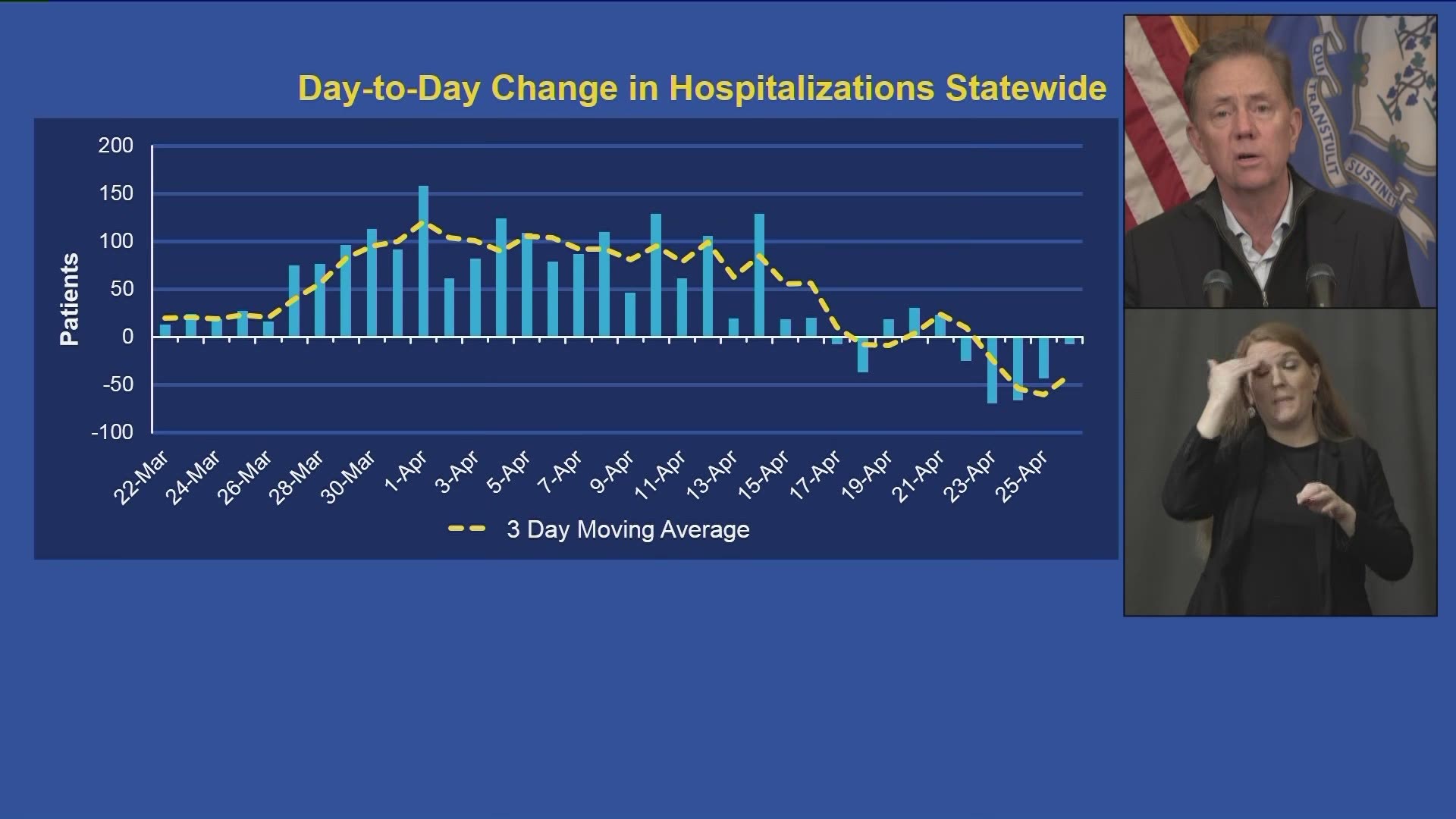Governor Ned Lamont focused much of his Monday press briefing on the impact the COVID-19 crisis is having on food in Connecticut.
Governor Lamont said he was recently briefed on the calls coming into the state's 211 information line and said many of them were about food concerns and insecurity.
In response, Governor Lamont announced he and state officials have been working together to figure out how the state can get in control of its own food supply.
"I know we don't make most of what we eat here in the state, but let's do a better job of aggregating what we can, and we can keep that food supply going so we don't have any farmers pouring milk away while people are lined up [for food]," Governor Lamont said.
Governor Lamont said Bryan Hurlburt, the Commissioner of the Department of Agriculture, will be leading an effort to consolidate the food supply chain in Connecticut.
Hurlburt said there are several areas that will be focused on including food insecurity, the food system, and food distribution.
"We need to acknowledge that it's not only people that are food insecure that are going to have challenges accessing food during all of this, but it's also folks that are in quarantine or self-isolating," Hurlburt said. "That becomes very important that we have ways to get food to them."
The final category is food availability and making sure the state is working with grocery partners to make sure everyone has access to food.
Another way the state is making sure people have access to food is by expanding the Supplemental Nutrition Assistance Program, or SNAP.
"We understand this is a difficult time for many families because of the impacts of the pandemic," said Deidre Gifford, the Commissioner of the Department of Social Services. "Food insecurity is a problem, in some cases, for the first time for many families."
Prior to the pandemic, Gifford said 350,000 individuals were being served by SNAP in Connecticut.
"We've done a number of things to make it easier to get and keep SNAP, and also to get more benefits to the people that are receiving SNAP already and expand," said Gifford.
Gifford said on Friday, Connecticut was approved for a so-called pandemic EBT program, which was authorized by Congress and signed into law. Gifford said this program will provide a new benefit to the families of 270,000 children who live in towns that serve a large number of free and reduced-price lunches. Gifford said families do not need to apply for this new benefit
Gifford said the state was also able to get waivers to make sure everybody who is already getting SNAP benefits is receiving the maximum amount.
"In the past, in April we were able to put $30 million additional dollars on families' SNAP cards and I'm happy to say we've also received approval to add another increased allotment in the month of May," Gifford said. "So another $15 million will go on the EBT cards for families in the month of May."
According to Gifford, eligibility for SNAP has also been extended. Recipients who were expecting to renew their benefits in April, May, or June had those benefits automatically extended for six months through the fall. Gifford said the state is working on a plan that would allow recipients to use SNAP benefits for online purchases.
"That was something that wasn't previously available to Connecticut families, but we're working with our partners at the USDA to be able to allow families with an EBT card to purchase food online and have it delivered or picked up," Gifford said. Gifford added details that were expected later in May.
Gifford said the state is also working with FEMA on a long-term plan to supply food for people who need to stay at home, including vulnerable populations or those who are sick or in quarantine. Gifford said the state may be able to turn to the restaurant industry in getting meals prepared and delivered.
"We're not able to purchase prepared food with SNAP benefits so this will be a new process that we're working on that we hope will assist our restaurant industries and address some of the food needs of people who are at home," said Gifford.
In addition to addressing food insecurity, Governor Lamont also released new data on COVID-19 in the state. The latest chart did not have information on the number of new cases or a total, but it did show an increase in fatalities. According to the state, 74 additional people have died from the coronavirus in Connecticut, bringing the total to 1,998 - just shy of 2,000.
Hospitalizations have dropped, with the latest report showing 1,758 patients are currently hospitalized with COVID-19.
"I always care about admissions because a lot of these hospitalization numbers reflect not just how many people are going in but how many are going out," said Governor Lamont.
When it comes to the day-to-day change in hospitalizations statewide, Governor Lamont said we're about 7-days into a downslope.
"That means in another 7-10 days, I think we can start making some announcements about places that we can go and places that can be opened," Governor Lamont said.

